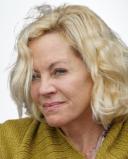Personal Perspectives
Parenting a Chronically Ill Child
A Personal Perspective: It took years to receive an accurate diagnosis.
Posted November 8, 2023 Reviewed by Lybi Ma
The director read out loud my daughter’s excused absences: fatigue, swollen glands, sore throat, exhaustion. She looked up at me. “Are you sure we’re not talking about something else?” I responded with a detailed listing of medical tests and specialists to determine the source of my eleven-year-old’s illness. She had been unwell with a host of difficulties (Mono, Epstein-Barr, swollen spleen and glands, fevers) since age four. Now, entering adolescence, her medical challenges had worsened, leaving her pale, listless, and often dizzy. How could anyone question the validity of her ailments?
The director was silent. Then she leaned across her desk, looked at me closely, and said, “Breathe.”
I was beside myself. As a clinical psychologist in a private therapy practice, I emphasized the benefits of body awareness and breathwork to many people. I relied on cognitive research and treatment strategies for stress management; health psychology was one of my subspecialties. I was incensed. Rather than reflecting back what I said – so I felt heard – she simply gave me a command. How dare she tell me to breathe? I thought. Then I realized: I wasn’t breathing at all.
Parenting a child with a chronic illness brought me to my knees. Our sons, five and six years older, had been athletic and healthy boys. Our daughter’s roller coaster illnesses and peculiar medical episodes, which flummoxed both medical and school communities, required a new mindset and emotional orientation toward both parenting and life.
It would take years for Sally to receive an accurate diagnosis for the host of autonomic dysfunctions she lives with dysautonomia, POTS, Ehlers-Danlos, Mast Cell Activation Syndrome, Hashimoto’s, Chronic Undifferentiated Tissue Disease. I like to think that being a psychologist gave me tools for the chronic illness journey and ultimately helped me reckon with my own struggles.
The unpredictability of our daughter’s illness – many days she almost lost consciousness from plummeting blood pressure and reduced cerebral blood flow – often felt like a crisis. I lived with a fight-or-flight sensation of being on high alert yet ill-equipped to do anything. Sometimes I despaired we would never find a diagnosis or treatment.
I reminded myself about learned helplessness – a vulnerability to depression when we believe we can’t control the outcomes of life events. I remembered the power of perceptions, beliefs, and attributions over our emotions. I did informal cognitive inventories, mentally charting out activities and incidents in relation to thoughts and feelings. I noticed how often I leaped from small and regular setbacks – a doctor appointment re-scheduled, an afternoon of my daughter sleeping in bed – to catastrophic conclusions about her life. And mine. I worked diligently to reframe some of my irrational beliefs, such as No one understands the severity of this. We are all alone. If we can’t figure this out, she will become depressed/ have a terrible life/ die.
I also tried to be more compassionate with myself, knowing that many people are good at empathy for others but not themselves. I was stunned to notice my lack of self-compassion. I often felt inadequate and yearned to be a stronger, wiser person. A better mother. Someone who could truly help her daughter.
Eventually, my resilience began to decline. One afternoon, I hovered over my daughter as a nurse began the IV for another procedure. Sally whispered to her, “I am totally okay, but I’m not sure about my mom.” The nurse suggested I leave the room. I then faced the hardest truth: I had to watch my child suffer. I had to allow it, while at the same time doing everything in my power to stop it. To heal her. To make her better. And I couldn’t.
I worked on a new sense of identity, and a new awareness of my place in the world. Coming to terms with my limitations was a turning point for me. So much of loving someone with a chronic illness involves doing nothing except being there for them. Being fully present, with all that we can bring to the moment. Not doing but being.
I suppose I allude to the notion of mindfulness, which so many therapy clients have found life-changing. By letting go of the past or future, and residing only in the present moment, we may find some peace. Meaning. Contentment. This kind of mindfulness allowed me to release worries about yesterday or anxieties about tomorrow. It opened me to small moments of beauty and joy that always are there.
Family, friends, and colleagues continually reminded me about self-care, which every therapist knows is integral to well-being. Between work hours and caregiving hours, weeks and months disappeared. I found time for self-care in small pockets of respite: tending my garden, trying a new recipe, reading, writing. There were no spa days or girls’ retreats. Truth be told, I felt isolated. Sally spent her adolescence in bed, enrolled in an online school. I felt I couldn’t be away.
Looking back, I think I isolated myself to cope with my pain. And many people truly didn’t know how to reach out. A part of me was broken. Being open about my own suffering felt too hard. Yet as a psychologist, I knew the immense value of relationships and community.
Slowly, over time, I opened myself to others, which was my salvation. Everyone – every doctor, nurse, callous receptionist, distracted friend, or uninterested fellow parent – belongs to the community of vulnerability. Connecting with our shared humanity has given me heart and courage on the darkest days of my daughter’s illness. Which have been sparse, as of late. Now in her early thirties, Sally is healthier than ever. She manages her health conditions, most of the time, on her own. She is an amazing writer and artist. She co-directs an organization for people with dysautonomia and is excited, she says, to help her community. These days, I’m bursting with pride. And gratitude.




